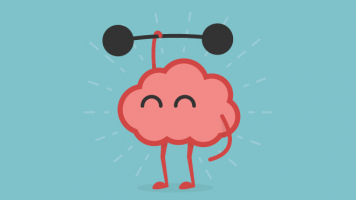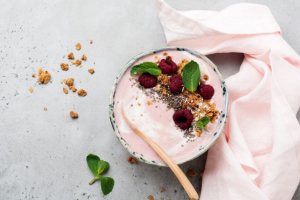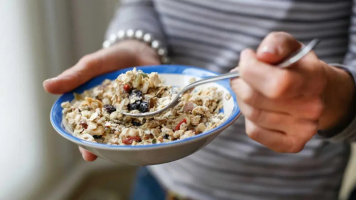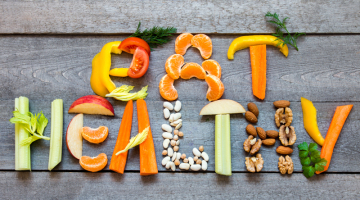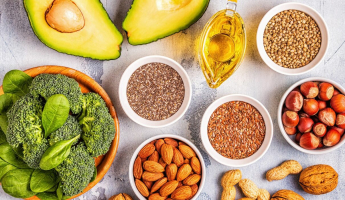Top 7 Best Ways to Make Your Coffee Super Healthy
One of the most consumed drinks in the world is coffee. It is also one of the healthiest, according to many health professionals. It may provide more ... read more...antioxidants in the diet than all fruits and vegetables combined for certain people. Here are some tips to make your coffee even healthier!
-
One of the most naturally available sources of caffeine in the diet is coffee. Coffee is quite popular because it contains caffeine, a stimulant. It energizes you and keeps you awake while you're feeling sleepy.
However, consuming coffee after a certain time of day can keep you up at night. Numerous health issues have been linked to insufficient sleep. Caffeine has a quarter-life of 10 to 12 hours, meaning that if you have coffee to get through an early afternoon meeting, you could still have caffeine coursing through your system at midnight. It's crucial to avoid drinking coffee in the afternoon because of this. If you must, go for decaf or choose a cup of tea, which has a lot less caffeine than coffee. A good thumb rule is to avoid coffee between 2:00 and 3:30 p.m. Even tea, or a coke – best avoid them all.

No Caffeine After 2 P.M. 
No Caffeine After 2 P.M. -
Coffee is healthy in and of itself, but you may easily make it unhealthy. Put a lot of sugar in it, which is the quickest way to do that. One of the worst things in the typical person's diet nowadays is undoubtedly added sugar.
Consuming excessive amounts of sugar might be harmful to your health. Obesity, type 2 diabetes, heart disease, cancer, and tooth decay have all been linked to added sugar, which is the sugar included in sodas, candies, and other processed foods. According to research, the average American consumes between 55 and 92 grams of added sugar per day, or 13 to 22 teaspoons of table sugar, which accounts for around 12 to 16% of daily calories. Due mostly to the high fructose content, sugar has been linked to a wide range of chronic illnesses, including diabetes and obesity. Use a natural sweetener like stevia if you find it impossible to imagine life without coffee sweeteners. You can further minimize your use of added sugar in a variety of ways.

Do Not Load Your Coffee With Sugar 
Do Not Load Your Coffee With Sugar -
Depending on the technique of processing and the way the coffee beans were grown, the quality of coffee can vary substantially. Most of the time, synthetic pesticides and other chemicals never intended for human consumption are sprayed on coffee beans.
Furthermore, the majority of the studies say that up to 250 pounds of fertilizers are sprayed per every single acre of non-organic coffee. Roughly 90% of the coffee are non-organic. The effects of pesticides and fertilizers in food on health, however, remain debatable. There is currently little proof that they are harmful when present in produce in small amounts. However, if you are concerned about the number of pesticides and fertilizers in your coffee, think about buying organic coffee beans. They should have considerably fewer synthetic pesticides in them.

Choose a Quality Brand, Preferably Organic 
Choose a Quality Brand, Preferably Organic -
Even though coffee might be beneficial in moderation, excessive use can counter some of the benefits. Although individual susceptibility differs, excessive caffeine use may have a number of negative side effects. Drinking too much coffee increases your body’s activity. In fact, it also can cause anxiety, problems with your nerves, as well as tachycardia. Therefore, it can lead to many health problems.
Health Canada advises against using more than 1.1 mg per pound (2.5 mg per kg) of body weight each day. For a person who weighs 176 pounds (80 kg) and an average cup of coffee has 95 mg of caffeine, this equates to around two cups of coffee per day. However, significantly greater doses of caffeine (400-600 mg daily, or around 4-6 cups) are not often linked to any negative side effects in most people. It all comes down to weighing the benefits and hazards of coffee consumption. Consume only as much as your body can tolerate comfortably while paying attention to it.

Avoid Drinking Too Much 
Avoid Drinking Too Much -
Cinnamon is a flavorful spice that pairs especially well with coffee's flavor. According to studies, cinnamon can help diabetics with their blood sugar, cholesterol, and triglyceride levels.
Try adding a little cinnamon if you think it needs additional flavor. Some people find that adding cinnamon to coffee heightens the flavor and adds a little extra sweetness without increasing the actual sugar content of your cuppa. Furthermore, cognitive performance is improved by cinnamon. Studies from the University of Georgia show that cinnamon increases the energizing effects of caffeine and sharpens cognitive functions. The addition of cinnamon also enhances brain function overall, which means visual and motor skills get an edge. If possible, choose Ceylon cinnamon over Cassia cinnamon to reduce the possibility of harmful side effects.

Add Some Cinnamon to Your Coffee 
Add Some Cinnamon to Your Coffee -
Commercial low-fat and artificial creamers frequently use highly processed ingredients and could also include questionable ingredients. Many coffee creamers have poor-quality ingredients like sugar, artificial sweeteners, and artificial flavors.
The effects of non-dairy coffee creamers on health, however, have not been well studied. Each brand's ingredients are different, and some may be healthier than others. However, whole, natural foods are usually a superior option. Instead of using a non-dairy creamer, consider putting some full-fat cream, especially from grass-fed cows, in your coffee. Milk products contain certain significant nutrients, according to studies. Dairy is a good source of calcium, for instance, and may lower the risk of osteoporosis and bone fractures. Additionally, part of the vitamin K found in milk from grass-fed cows is linked to better bone health.

Avoid Low-Fat and Artificial Creamers 
Avoid Low-Fat and Artificial Creamers -
Antioxidant-rich cocoa has a wide range of health advantages, including a lower risk of heart disease. You may give your coffee a chocolatey flavor by mixing cocoa powder into it.
Adding cocoa powder can bring hot chocolate goodness to your coffee and can make your black coffee more flavorsome if you’re not a fan of the pure black drink. Making your own at home is simple, so you may avoid using extra sugar. You can prepare a paste by mixing 1 to 1.5 tablespoons of unsweetened cocoa powder with a small amount of coffee. You can make your own mocha-flavored black coffee by mixing it thoroughly and then adding more coffee. Other options besides cocoa are available to improve the taste and aroma of your coffee. You can flavor your coffee with vanilla extract, coconut milk, almond milk creamer, honey, cinnamon, and other sugar substitutes.

Add Some Cocoa to Your Coffee 
Add Some Cocoa to Your Coffee










